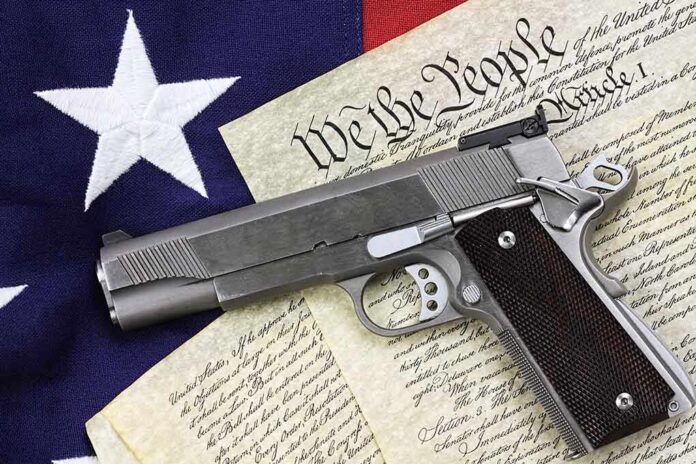A legislative battle in North Carolina to implement permitless carry has intensified, sparking significant debate over Second Amendment rights and public safety.
Story Highlights
- North Carolina Senate has overridden Governor Stein’s veto of the permitless carry bill.
- A pivotal House member has changed their vote, increasing chances of a successful override.
- Advocacy groups on both sides intensify lobbying efforts in anticipation of the House vote.
- The decision could make North Carolina the 30th state to adopt permitless carry.
Grassroots Mobilization and Legislative Maneuvering
Grassroots North Carolina, led by Paul Valone, is spearheading efforts to override Governor Josh Stein’s veto of Senate Bill 50. The bill, known as the “Freedom to Carry NC” act, aims to allow the permitless concealed carry of handguns. The Senate has already overridden the veto, and the focus now shifts to the House, where a single member’s change of vote could determine the outcome. This development underscores the close margins and the critical role individual legislators play in shaping state policy.
The campaign for permitless carry is occurring in a highly polarized environment. Despite strong public opposition, with 77% of likely voters against it, proponents argue that it is a constitutional right for law-abiding citizens to carry concealed weapons without government interference. The NRA-ILA and Grassroots North Carolina are leading the charge, pushing for expanded gun rights in alignment with conservative values of individual liberty and limited government.
Historical Context and Advocacy Dynamics
North Carolina has traditionally required permits for concealed carry, involving background checks and training. The push for “constitutional carry” reflects a broader national trend, with 29 other states having adopted similar laws by 2025. This movement gains momentum from a combination of grassroots advocacy and lobbying by national organizations like the NRA. The current legislative effort is part of a broader strategy to roll back regulations perceived as infringing on Second Amendment protections.
Governor Stein’s veto is grounded in public safety concerns, a stance supported by groups such as Everytown for Gun Safety and Moms Demand Action. These organizations highlight research linking permitless carry to increased risks of gun violence and accidental shootings. The debate is further fueled by recent changes in North Carolina’s gun laws, such as the 2023 repeal of the pistol purchase permit law, which indicate a shift towards looser regulations.
Potential Implications and Broader Effects
If the House successfully overrides the veto, North Carolina will join 29 other states in allowing permitless carry. This could lead to immediate changes where most adults can carry concealed handguns without permits, although certain restrictions would remain in sensitive areas such as schools and government buildings. This shift may also prompt legal challenges and confusion as law enforcement and the public adjust to the new regulations.
The long-term implications are significant. North Carolina’s decision could influence similar efforts in other states, potentially reshaping the national landscape of gun rights. While supporters argue for individual freedom and self-defense, opponents warn of increased gun violence and the erosion of public safety standards. As this legislative journey unfolds, it is likely to become a pivotal issue in upcoming state and national elections, reflecting deep societal divisions on gun rights and safety.
Sources:
NRA-ILA, “North Carolina: Pro-Gun Bills Advance in Veto Override Session,” 2025-07-29.
Powers Law Firm, “North Carolina Concealed Carry Law: Status of 2025 Legislation,” 2025-08-02.











